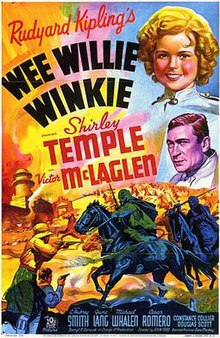
Victor Andrew de Bier Everleigh McLaglen was a British-American actor and boxer. His film career spanned from the early 1920s through the 1950s, initially as a leading man, though he was better known for his character acting. He was a well-known member of John Ford’s Stock Company, appearing in 12 of the director’s films, seven of which co-starred John Wayne.

The Informer is a 1935 American drama thriller film directed and produced by John Ford, adapted by Dudley Nichols from the 1925 novel of the same title by Irish novelist Liam O'Flaherty. Set in 1922, the plot concerns the underside of the Irish War of Independence and centers on a disgraced Republican man, played by Victor McLaglen, who anonymously informs on his former comrades and spirals into guilt as his treachery becomes known. Heather Angel, Preston Foster, Margot Grahame, Wallace Ford, Una O'Connor and J. M. Kerrigan co-star. The novel had previously been adapted for a British film of the same name in 1929.

Julien Josephson was an American motion picture screenwriter. His career spanned between 1914 and 1943. He was a native of Roseburg, Oregon.
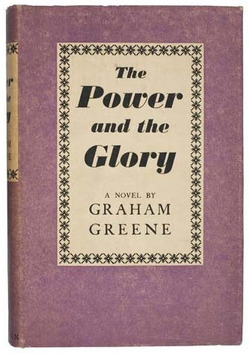
The Power and the Glory is a 1940 novel by British author Graham Greene. The title is an allusion to the doxology often recited at the end of the Lord's Prayer: "For thine is the kingdom, the power, and the glory, forever and ever, amen." It was initially published in the United States under the title The Labyrinthine Ways.

Shirley Temple Black was an American actress, singer, dancer, and diplomat, who was Hollywood's number-one box-office draw as a child actress from 1934 to 1938. Later, she was named United States Ambassador to Ghana and Czechoslovakia, and also served as Chief of Protocol of the United States.
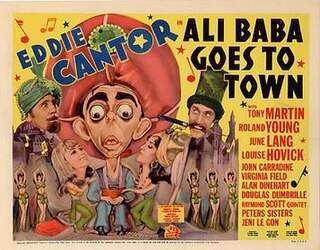
Ali Baba Goes to Town is a 1937 American musical comedy film directed by David Butler and starring Eddie Cantor, Tony Martin, and Roland Young. Cantor plays a hobo named Aloysius "Al" Babson, who walks into the camp of a movie company that is making the Arabian Nights. He falls asleep and dreams he is in Baghdad as an advisor to the Sultan (Young). He organizes work programs, taxes the rich, and abolishes the army, in a spoof of Roosevelt's New Deal. This film was the second of three in which Shirley Temple and Cesar Romero appeared together, second was Wee Willie Winkie (1937) and The Little Princess (1939).

June Lang was an American film actress.

The Little Princess is a 1939 American drama film directed by Walter Lang. The screenplay by Ethel Hill and Walter Ferris is loosely based on the 1905 novel A Little Princess by Frances Hodgson Burnett. The film was the first Shirley Temple movie to be filmed completely in Technicolor. It was also her last major success as a child star. This film was the third of three in which Shirley Temple and Cesar Romero appeared together, following Wee Willie Winkie (1937) and Ali Baba Goes to Town (1937).

They Won't Forget is a 1937 American drama film directed by Mervyn LeRoy and starring Claude Rains, Gloria Dickson, Edward Norris, and Lana Turner, in her feature debut. It was based on a novel by Ward Greene called Death in the Deep South, which was in turn a fictionalized account of a real-life case: the trial and subsequent lynching of Leo Frank after the murder of Mary Phagan in 1913.
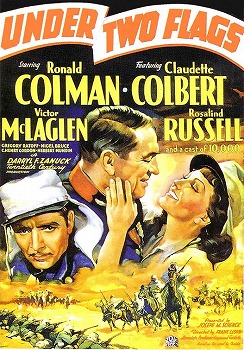
Under Two Flags is a 1936 American adventure romance film directed by Frank Lloyd and starring Ronald Colman, Claudette Colbert, Victor McLaglen, and Rosalind Russell. The picture was based on the 1867 novel of the same name by the writer Ouida. The film was widely popular with audiences of its time. The supporting cast features Nigel Bruce, John Carradine, and Fritz Leiber.

The Littlest Rebel is a 1935 American musical drama film directed by David Butler. The screenplay by Edwin J. Burke was adapted from a play of the same name by Edward Peple.

Slave Ship is a 1937 American historical adventure film directed by Tay Garnett and starring Warner Baxter, Wallace Beery and Elizabeth Allan. The supporting cast features Mickey Rooney, George Sanders, Jane Darwell, and Joseph Schildkraut. It is one of very few films out of the forty-eight that Beery made during the sound era for which he did not receive top billing.

Klondike Annie is a 1936 American Drama film starring Mae West and Victor McLaglen. The film was co-written by West from her play Frisco Kate, which she wrote in 1921 and a story written by the duo Marion Morgan and George Brendan Dowell. Raoul Walsh directed.
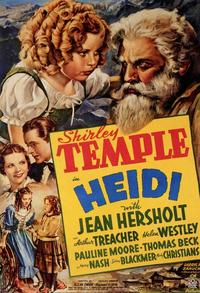
Heidi is a 1937 American musical drama film directed by Allan Dwan and written by Julien Josephson and Walter Ferris, loosely based on Johanna Spyri's 1880 children's book of the same name. The film stars Shirley Temple as the titular orphan, who is taken from her grandfather to live as a companion to Klara, a spoiled, disabled girl. It was a success and Temple enjoyed her third consecutive year as number one box office draw.
Wee Willie Winkie is a nursery rhyme. It may also refer to:
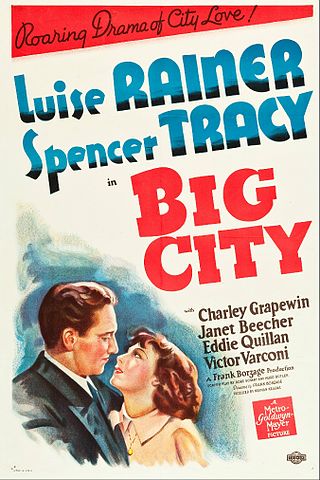
Big City is a 1937 American drama film directed by Frank Borzage and starring Luise Rainer and Spencer Tracy. The film was also released as Skyscraper Wilderness.
Cyril McLaglen was a British actor who appeared in a variety of films between 1920 and 1951. He was born in London in 1899 and made his film debut in the 1920 film The Call of the Road. He was the younger brother of the actor Victor McLaglen.

This Is My Affair is a 1937 American period crime film directed by William A. Seiter and starring Robert Taylor, Barbara Stanwyck, Victor McLaglen and Brian Donlevy. It was produced and released by 20th Century Fox.

Professional Soldier is a 1935 American adventure film based on a 1931 story by Damon Runyon, "Gentlemen, the King!" It stars Victor McLaglen and Freddie Bartholomew. The film was directed by Tay Garnett, and produced by Twentieth Century Fox.
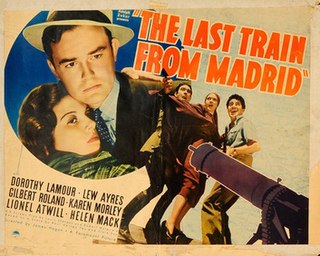
The Last Train from Madrid is a 1937 American war drama film directed by James P. Hogan and starring Dorothy Lamour, Lew Ayres and Gilbert Roland. It is set during the Spanish Civil War. The film was one of the few contemporary Hollywood films made about the war.
